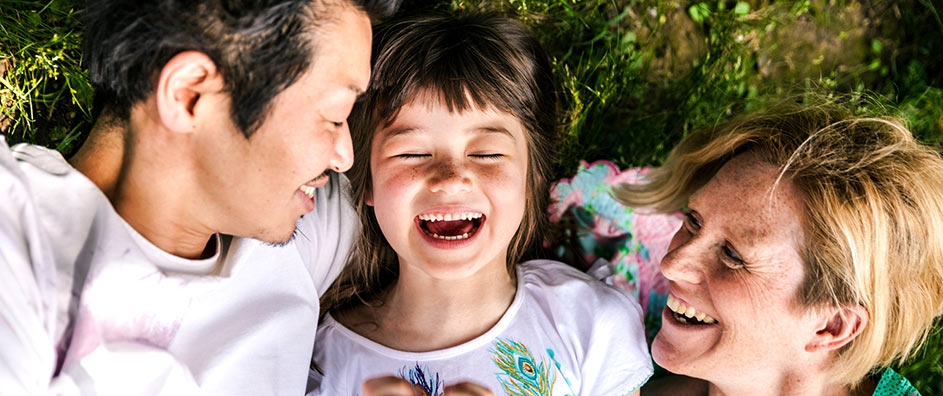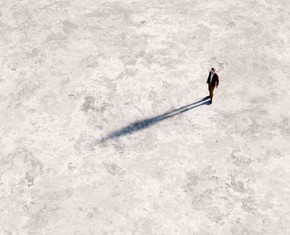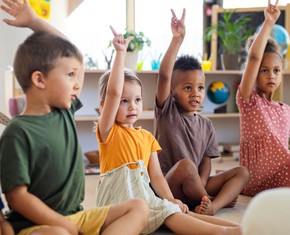The views expressed in our content reflect individual perspectives and do not represent the authoritative views of the Baha'i Faith.
It’s never too early to teach children the qualities and habits they need to have healthy relationships later in life.
Humanity has progressed quite a bit in many respects. Some of the most brutal acts humans are capable of are far less prevalent now than in the past: things like torture, slavery, cannibalism, and mass murder. But two of our cruelest deeds still occur frequently nearly everywhere in the world. Rape and sexual assault remain with us. Any attempt to make them a thing of the past is worthy of considerable attention, effort, and sacrifice by a broad range of members of every society.
One major area of focus to prevent rape and sexual assault involves teaching young people about the importance of giving and receiving consent in their relationships. Such education is critical as they approach the teenage years—but there’s a great deal to be gained by starting earlier.
Clearly, few people want to talk about sex with six and eight year olds. Fortunately, we don’t have to—because sex education, in the form of educating children about relationships, can begin in early childhood. Many of the habits essential to healthy adult sexual relationships later in life are established well before children have any kind of sexual awareness, and pertain to all aspects of our relationships with others.
Every child needs to learn, as early as possible in life, the spiritual character traits of respect, compassion, self-control, and the courage to stand up for what is right. That would be true even if humans reproduced by splitting in two, like bacteria and other one-celled organisms. When young people first become aware of their sexuality, they are much more likely to have healthy, loving relationships if they already embody these positive spiritual qualities.
We approach the issue much too narrowly if we only think of it in terms of sex education, when its proper scope encompasses the much broader context of moral education. This kind of early childhood spiritual training concerns the most general habits we have about how we interact with others and perceive them.
Every child needs to learn the answers to these questions: Are other people there for our own use and enjoyment? Or do we feel an obligation to restrain ourselves based on their cues, preferences, and demands? Do men’s desires take precedence over women’s desires? Does might make right? Or does the recognition of equality forbid any insistence on dominance, submission or the use of force? Are our lives guided by the pursuit of physical pleasure? Or do noble and altruistic pursuits occupy our attention?

Baha’i communities have long acknowledged the importance of classes for children that cultivate their budding moral capacities. Such efforts give organization and direction to the aspirations of parents and community members, helping their young people align themselves with constructive forces in society, rather than destructive ones. Adults can, if they participate in the early childhood training of building moral capacities, actively prevent sexual violence in the future as they help children develop spiritual qualities and establish praiseworthy patterns of behavior today. Many would agree that this promising avenue can contribute greatly to the broader struggle against rape and sexual assault.
You may ask: How can classes in religion be relevant to the issue of sexual violence? After all, preventing sexual violence—and violence of all kinds—requires training young people to do what is right, not just believe what is right:
… Baha’i children’s classes are not like the classes of indoctrination which are common in many other religions. Even though children are instructed in the principles, teachings, and basic beliefs of the Faith, the emphasis is on learning to think, to reflect, and to apply spiritual laws to the life of the individual and society. Especially during the early years of childhood, great attention is given to the development of spiritual qualities and to those beliefs, habits, and behaviors that constitute the essential attributes of a spiritual being. – Teaching Children’s Classes: Grade 1, the Ruhi Institute.
Think about it this way: Could rape and sexual assault disappear in the next decade or two? Those who are now just learning to walk and talk will have to grapple with this issue. It makes sense, then, that we look forward to the struggle ahead by preparing a generation with the moral vision necessary for relating to each other in justice and equity. Only adults and older youth can understand the moral importance of the traits children develop early on, and the implications they will have later in life. It is essential that they guide the next generation towards healthy and praiseworthy behavior.
Two diverging paths appear in front of every child. Abdu’l-Baha wrote:
Every child is potentially the light of the world—and at the same time its darkness; wherefore must the question of education be accounted as of primary importance. – Selections from the Writings of Abdu’l-Baha, p. 138.
Baha’is believe that everyone can assist children to be the lights of the world. After all, it’s not inevitable that any of them become its darkness.
We can help them uphold the standards of thought and behavior which will make rape and sexual assault things of the past. In every corner of the world, parents and community members use Baha’i children’s classes to bring out the best in the rising generations. As their endeavors mature, the opportunity for addressing this vital issue for all humanity becomes more potent and more critical.
You May Also Like
Comments

















The wrong education about relationships begins at surprisingly early ages for many children. In elementary school a boy on the bus was surprised when I said I didn't intend to date anyone until I was an adult. "Not even if he was hot?" In sixth grade this same boy had a binder that said "Hookups" on the cover over a cartoon of two women with vacant expressions and enormous boobs. It's impossible to shelter someone from the toxic elements of relationship culture until they grow up. But if they have a strong moral center and get ...their priorities straight early in life, then it is easy to see through the rhetoric of male dominance and shallow relationships.